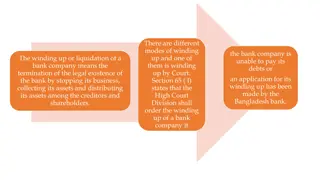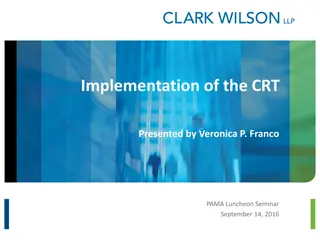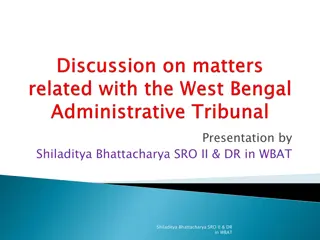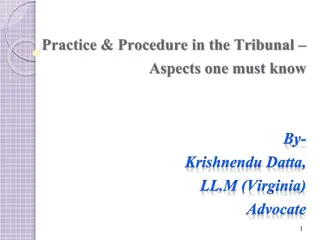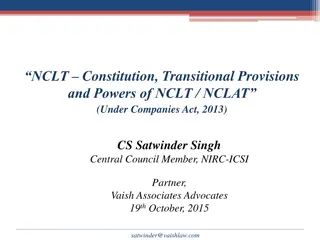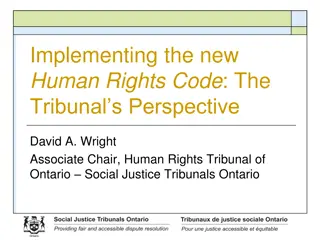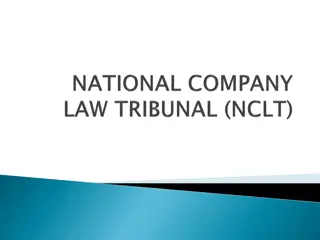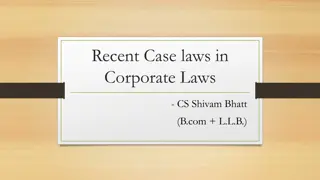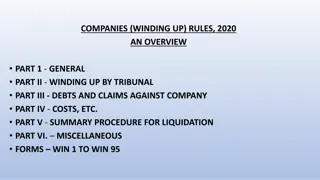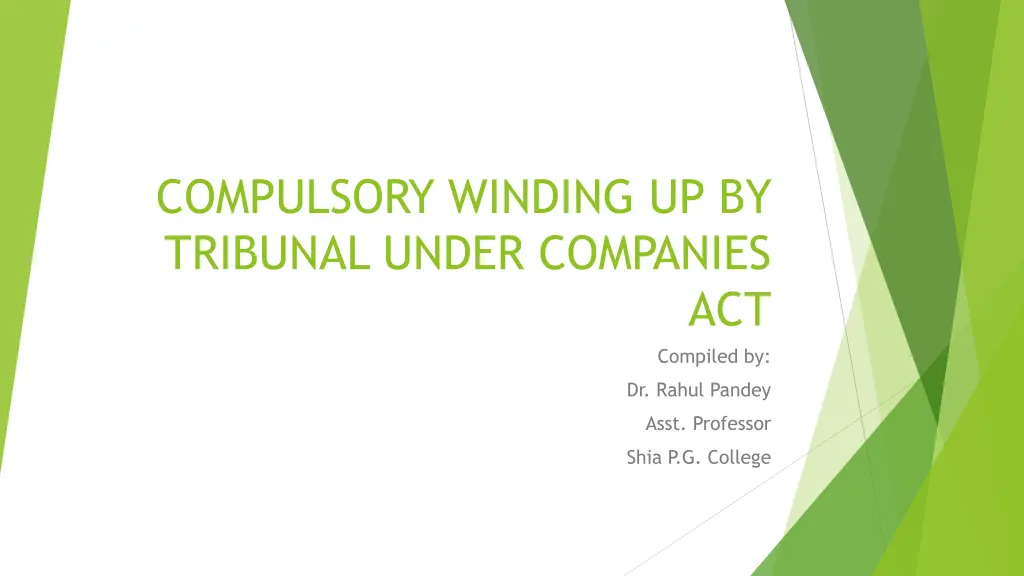
Compulsory Winding Up by Tribunal Under Companies Act Explained
Learn about the provisions of compulsory winding up by the tribunal under the Companies Act, covering grounds for winding up, when winding up is considered just and equitable, and who may petition for winding up. Find out more about this important aspect of company law as outlined by Dr. Rahul Pandey, Assistant Professor at Shia P.G. College.
Download Presentation

Please find below an Image/Link to download the presentation.
The content on the website is provided AS IS for your information and personal use only. It may not be sold, licensed, or shared on other websites without obtaining consent from the author. If you encounter any issues during the download, it is possible that the publisher has removed the file from their server.
You are allowed to download the files provided on this website for personal or commercial use, subject to the condition that they are used lawfully. All files are the property of their respective owners.
The content on the website is provided AS IS for your information and personal use only. It may not be sold, licensed, or shared on other websites without obtaining consent from the author.
E N D
Presentation Transcript
COMPULSORY WINDING UP BY TRIBUNAL UNDER COMPANIES ACT Compiled by: Dr. Rahul Pandey Asst. Professor Shia P.G. College
COMPULSORY WINDING UP BY TRIBUNAL UNDER COMPANIES ACT According to Section 271(1) a company may, on a petition under Section 272, be wound up by the Tribunal. Grounds for Winding up A company may, on a petition under section 272, be wound up by the Tribunal- If the company has by special resolution, resolved that the company be wound up by the Tribunal; (a) (b) If the has acted against the interests of the sovereignty and integrity of India, the security of the State, friendly relations with foreign States, public order, decency or morality; If on an application made by the Registrar or any other person centralised by the Central Government by notification under this Act, the Tribunal is of the fraudulent manner or the company was formed for fraudulent and unlawful purpose or the person concerned in the formation or management of its affairs has been guilty of fraud, misfeasance or misconduct in connection therewith and that it is proper that the company be wound up; (c) [SOURCE/CREDIT : Company Law, B.K. GOYAL. SINGHAL LAW PUBLICATIONS, NEW DELHI] The Companies Act, 2013 (BARE ACT)
(d) If the company has made a default in filing with the Registrar its financial statements or annual returns for immediately preceding five consecutive financial years; or (e) if the Tribunal is of the opinion that it is just and equitable that the company should be wound up. When is winding up Considered Just and Equitable Deadlock in corporation partnership. When there is a deadlock in the management of the company it is just an equitable to order winding i. Loss of substratum.It is just and equitable to wind up a company if the main business of the company has disappeared through the Government taking over that business, or otherwise, and there is no prospect of company dealing in any other business. However, a temporary difficulty, not knocking out the company s bottom, should not be permitted to become a just and equitable ground for winding up. ii. Losses. It is just and equitable to wind up a company when it cannot carry on business except at a loss. iii. Fraud. It is just and equitable to wind up a company if it is brought for the fraud or for illegal purpose iv.
(v) Oppression of minority by majority. Where majority adopts oppressive or aggressive policy towards the minority, the company may be wound up on just and equitable ground. It depends on fact of each case. Petition for winding up (Section 272) (Who may petition) Section 272 provides that subject to the provisions of this Section, a petition to the Tribunal for the winding up of the company shall be presented by: the company; a) Any contributory or contributories; b) All or any of the persons specified in the clauses (a) and (b) together; c) The registrar; d) Any person authorised by the Central Government in that behalf; or e) In a case falling under clause (b) of sub-section (1) of Section 271, by the Central Government or a State Government. f)
[SOURCE/CREDIT : Company Law, B.K. GOYAL. SINGHAL LAW PUBLICATIONS, NEW DELHI] The Companies Act, 2013 (BARE ACT) Thank You





